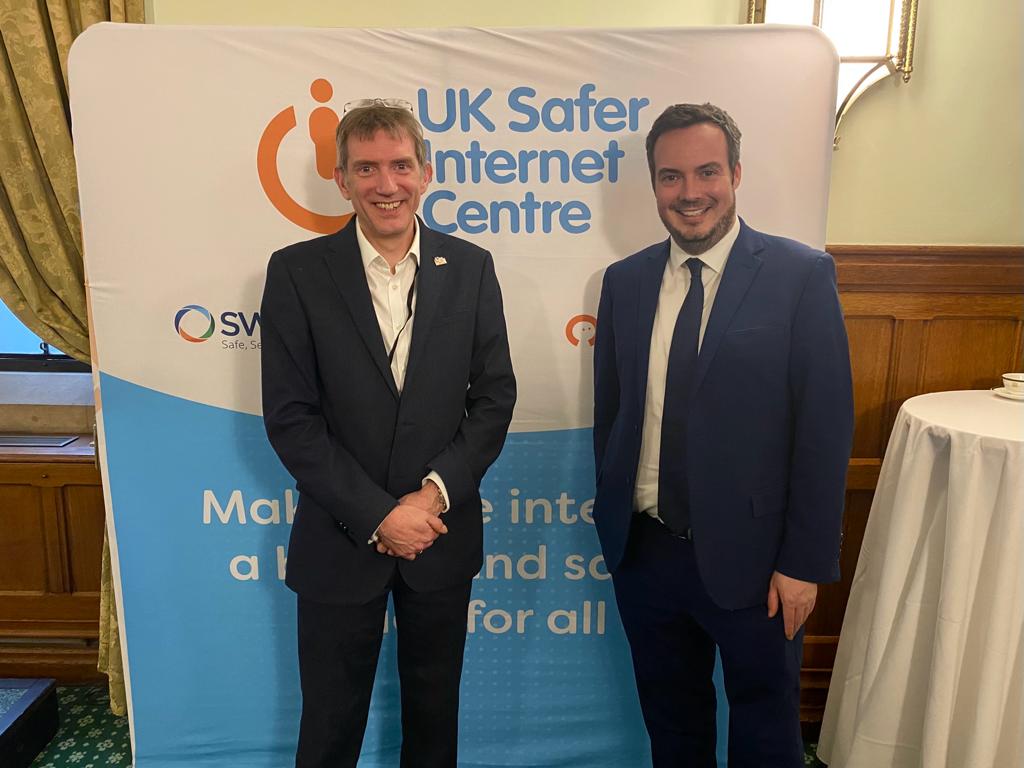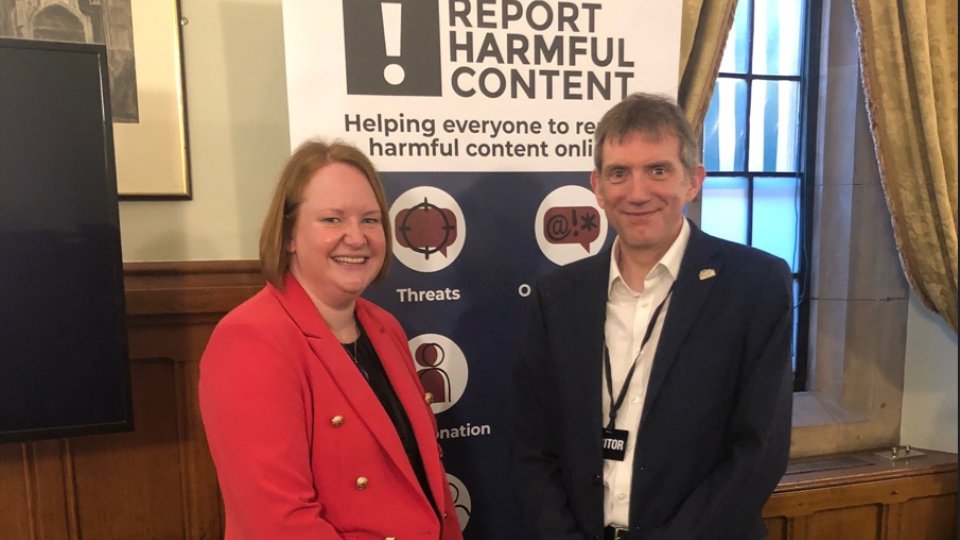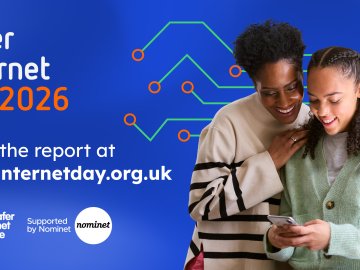This week, SWGfL attended the Houses of Parliament to present an exclusive look at the latest research from the Report Harmful Content platform, looking at the impact of legal but harmful material online. As part of our visit, we led two sessions for members of parliament and associated organisations: a smaller roundtable discussion and a standing reception.
Legal but Harmful Material
For our Roundtable discussion, we were joined by members of parliament including members of the house of lords along with industry and colleagues from the Molly Rose Foundation and Schillings, hosted by our local MP Simon Jupp. Our own David Wright (CEO of SWGfL and Director UK Safer Internet Centre) and Kathryn Tremlett (Harmful Content Manager) presented our findings into the impact of legal but harmful material online whilst getting a solicitor perspective from Schillings on what constitutes legal but harmful material.
joined by members of parliament including members of the house of lords along with industry and colleagues from the Molly Rose Foundation and Schillings, hosted by our local MP Simon Jupp. Our own David Wright (CEO of SWGfL and Director UK Safer Internet Centre) and Kathryn Tremlett (Harmful Content Manager) presented our findings into the impact of legal but harmful material online whilst getting a solicitor perspective from Schillings on what constitutes legal but harmful material.
This would go on to form a wider discussion into the role of impartial dispute resolution in the context of the Online Safety Bill and how important an independent appeals process would be. We highlighted the essential need for a service like Report Harmful Content and why dismantling the current obligations on platforms (to impartial dispute resolution) within the Online Safety Bill would lead to towards further impact of harm online.
This valuable discussion was then followed by a standing reception where we were joined by other members of parliament for an additional presentation of the report findings along with an overview of the work of the UK Safer Internet Centre and Report Harmful Content.
David Wright CEO of SWGfL and Director UK Safer Internet Centre said:
Our visit to Westminster provided much-needed discussion into the impact of legal but harmful material online and to share the types and volumes of calls that Report Harmful Content receives and manages. It was a privilege to be able to speak with members around why independent appeals processes have to be continued and included within the Online Safety Bill. We hope that from our research and visit, this will form the basis for more discussion and awareness of the problems we are currently seeing across our services. Far from making the UK the safest place to be online, by removing the current obligations on platforms to provide an appeals process, this can only take the UK further from its objective.






